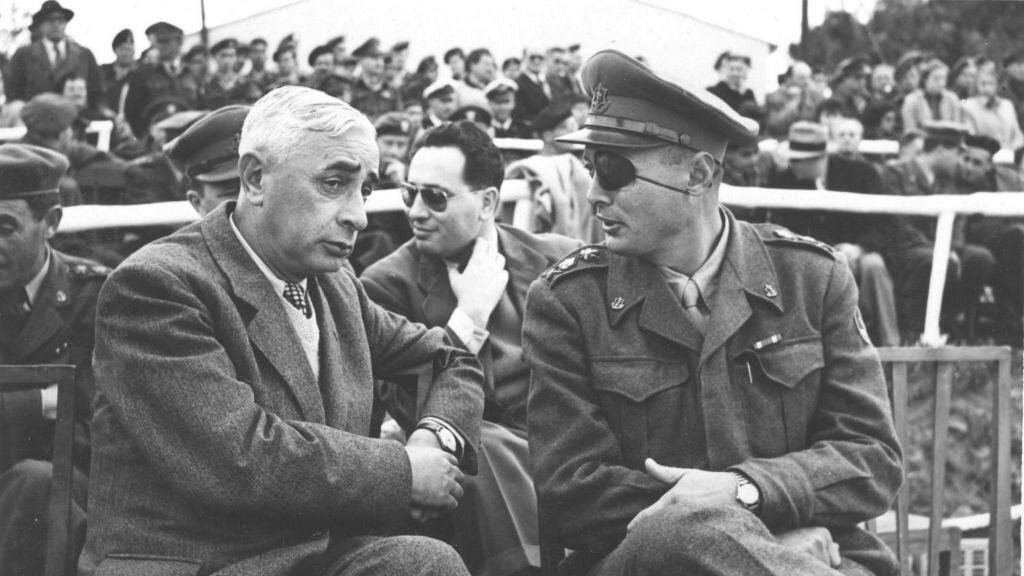Operation Susannah 2.0? Tehran warns UK of Mossad-style plots to derail ties

TEHRAN – Iran’s Ambassador to the United Kingdom, Ali Mousavi, has sounded the alarm over potential "false flag operations" aimed at sabotaging Tehran-London relations.
In a meeting with UK Security Minister Dan Jarvis on Monday, Mousavi denounced the recent arrests of Iranian nationals as "politically motivated fabrications" and called for heightened vigilance against covert schemes to escalate tensions.
"Third parties will stop at nothing to undermine diplomacy, even staging fabricated incidents," Mousavi warned, pointing to the release of four Iranians detained this month under counterterrorism laws without charges.
He pressed British officials to uphold due process and cautioned against "hidden agendas" framing Iran for destabilizing acts.
The rift widened after the UK charged three Iranians under its National Security Act, alleging ties to a "foreign intelligence service".
Iran’s Foreign Ministry summoned the British chargé d'affaires, condemning the arrests "unlawful" and a breach of international norms.
Foreign Minister Abbas Araghchi tweeted: "Iran rejects these accusations outright. The timing and lack of transparency hint at ulterior motives."
Some experts contend that the UK's actions are rooted in mounting frustration over its declining influence in international diplomacy, prompting British officials to leverage pressure tactics to steer negotiations.
Additionally, other analysts argue that these measures dovetail with pro-Israel initiatives aimed at designating Iran’s Islamic Revolution Guard Corps (IRGC) as a terrorist organization—a classification Tehran vehemently condemns, viewing it as an unjustified escalation that severely damages diplomatic relations and heightens tensions between Iran and the West.
Iranian officials cite the Israeli regime’s track record of false flag operations to bolster their warnings. Foreign Ministry Spokesman Esmaeil Baqaei declared: "The Zionist regime has long flouted international law, from Gaza to the Lavon Affair, using sabotage to deceive."
The Lavon Affair (1954)
In July 1954, the Israeli regime launched Operation Susannah, later dubbed the Lavon Affair, a botched covert mission in Egypt.
Israeli military intelligence recruited a cell of Egyptian Jews to bomb civilian targets—cinemas, libraries, and U.S.-owned cultural centers in Cairo and Alexandria.
The plot aimed to pin the attacks on the Muslim Brotherhood or Egyptian communists, sowing chaos to convince Britain to keep troops in the Suez Canal zone, a linchpin for Tel Aviv’s regional strategy.
The operatives used crude incendiary devices hidden in books and bags, targeting places like the Cairo train station’s post office and the Rio Cinema.
Egyptian security foiled the scheme, capturing the agents after a bomb prematurely detonated. Public trials followed, with two executed and others imprisoned.
The fallout humiliated the Israeli regime: War Minister Pinhas Lavon resigned amid internal strife, and relations with the U.S. and UK soured.
Israel denied responsibility until 2005, when it honored surviving operatives, quietly admitting its role.
USS Liberty Incident (1967)
On June 8, 1967, amid the Six-Day War, Israeli jets and torpedo boats assaulted the USS Liberty, a U.S. Navy intelligence ship in international waters off Sinai. The two-hour barrage—machine-gun fire, napalm, and torpedoes—killed 34 American sailors and wounded 171, nearly sinking the vessel.
The regime insisted it mistook the Liberty, flying a U.S. flag, for an Egyptian horse carrier, offering apologies and compensation.
Yet survivors and U.S. officials, including Secretary of State Dean Rusk, disputed this, citing evidence of deliberate intent.
Declassified reports reveal Israeli reconnaissance planes circled the ship hours earlier, and radio intercepts suggest orders to ensure no survivors. Critics argue Tel Aviv aimed to silence U.S. monitoring of its Golan Heights offensive.
1994 London Israeli Embassy Bombing
On July 26, 1994, a car bomb rocked Israel’s embassy in London, injuring 20. Hours later, a second blast hit Balfour House, a Jewish charity, wounding six.
British authorities blamed Palestinian militants, convicting Samar Alami and Jawad Botmeh despite their claims of innocence.
Former MI5 officer Annie Machon later alleged Mossad staged the attacks to smear Palestinian activists in the UK, then an alleged hub for West Asian exiles.
Machon claimed the bombs’ sophistication pointed to state actors, not amateurs, and noted MI5’s ignored warnings of Israeli involvement, suggesting a false flag to sway British policy.
Ambassador Mousavi’s alert reflects Tehran’s fear that Israel might stage a new "Susannah" to implicate Iran, leveraging the IRGC’s prominence and stalled nuclear talks.
As Spokesman Baqaei warned: "The Zionist regime’s history of sabotage makes such scenarios plausible."
